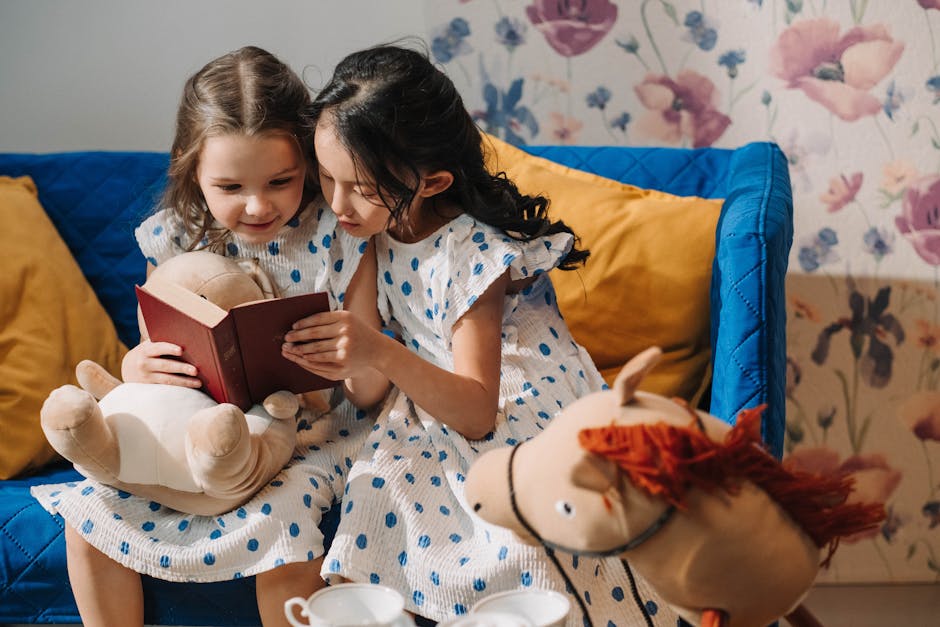The Impact of Audio Storytelling on My Imagination.
The Impact of Audio Storytelling on My Imagination
In a world increasingly saturated with visual stimuli, from high-definition screens to immersive virtual realities, it might seem counterintuitive that a medium relying solely on sound could hold such profound power. Yet, for me, audio storytelling has been nothing short of a revelation, a silent revolution in the landscape of my inner world. It’s not just an alternative to reading or watching; it’s a distinct, potent force that engages my imagination in ways no other medium can, compelling it to work harder, dream bigger, and feel deeper. This isn’t merely about listening; it’s about active creation, a collaborative dance between the storyteller’s voice and the boundless potential of my own mind.
From the rustle of leaves in a fantasy forest to the hushed tones of a conspiracy unfolding, every sound cue, every inflection, becomes a brushstroke on the unseen canvas of my consciousness. My imagination, far from being a passive recipient, becomes an active participant, a co-creator of worlds and characters that feel astonishingly real. This journey into the auditory sphere has not just entertained me; it has fundamentally reshaped how I perceive stories, how I visualize concepts, and how I connect with narratives on an intensely personal level. It has become a cornerstone in the ongoing development of my imaginative faculties, proving that sometimes, the greatest clarity comes when you close your eyes and truly listen.
The Unseen Canvas: How Audio Storytelling Paints My Inner Worlds
The most immediate and striking impact of audio storytelling on my imagination is its unique ability to conjure vivid, detailed worlds without a single visual prompt. Unlike books, which offer textual descriptions, or films, which provide ready-made images, audio narratives present a fascinating void. This void isn’t empty; it’s an invitation. My brain, eager to fill the gaps, springs into action, becoming the ultimate production designer, cinematographer, and costume artist all rolled into one. When I listen to an intricate description of an alien city, my imagination isn’t just recalling images; it’s constructing them from scratch, synthesizing auditory cues into architectural marvels, bustling marketplaces, and the very atmosphere of an otherworldly realm.
This process is far more active than simply observing. The narrator’s voice, the subtle sound effects – a distant siren, the creak of a floorboard, the distinct echo of a cavern – become powerful triggers. They don’t show me the scene; they give me the raw materials, the sensory data that my mind then processes and translates into tangible mental imagery. It’s a deeply personal form of visualization, where the characters’ faces, their gestures, the textures of their clothing, the precise shade of a sunset over a fantastical landscape are all uniquely *mine*. No two listeners will ever “see” the same story, and that individuality is where the true magic lies. This active engagement strengthens my ability to visualize complex scenarios, fostering a mental agility that extends far beyond the realm of storytelling into problem-solving and creative thinking in my daily life. It’s a workout for the mind’s eye, constantly pushing its boundaries.
Beyond Sight, Into Feeling: My Imagination’s Emotional Resonance Through Audio
While the visual aspect of imagination is undeniably stimulated, the impact of audio storytelling on my emotional and empathic imagination is equally profound, if not more so. Stripped of visual distractions, the human voice becomes an incredibly powerful conduit for emotion. The subtle tremor in a character’s voice, a sigh of despair, a gasp of surprise – these auditory nuances bypass the analytical mind and go straight to the heart. My imagination doesn’t just visualize the scene; it *feels* it. I find myself more deeply immersed in the emotional landscape of the story, experiencing a heightened sense of empathy for the characters.
Without a face to judge or a setting to distract, my imagination focuses intensely on the internal states of the characters. I project myself into their shoes more completely, feeling their joy, their sorrow, their fear, and their triumphs with an intensity that often surpasses my experience with visual media. This deep emotional engagement is a direct result of my imagination being forced to create the emotional context from auditory cues alone. It cultivates a richer understanding of human experience and strengthens my capacity for empathy in the real world. Research on auditory processing and imagination suggests that the brain actively constructs these emotional realities, making the experience incredibly personal and impactful. My imagination isn’t just seeing; it’s truly *feeling* the narrative unfold.

An Active Mind’s Playground: How Audio Demands and Develops My Imagination
One of the most significant differences between audio storytelling and other forms of media lies in its inherent demand for active participation. Unlike passive viewing, where images and sounds are presented in a complete package, audio narratives require my imagination to be constantly “on.” It’s not just about filling in visual gaps; it’s about processing information, predicting outcomes, connecting disparate plot points, and actively constructing the entire narrative experience. This continuous mental exercise is a powerful developmental tool for my imagination.
My brain is constantly engaged in a complex process of interpretation and creation. It deciphers vocal inflections to understand subtext, analyzes sound effects to gauge distance and environment, and pieces together dialogue to build character profiles and advance the plot. This active listening isn’t just about hearing; it’s about inferring, hypothesizing, and painting a dynamic mental picture that evolves with every spoken word. This constant engagement strengthens my cognitive flexibility and my ability to synthesize information from limited input. It’s a mental workout that improves my focus, my memory, and my capacity for imaginative problem-solving, making my mind a more agile and resourceful instrument. For more on The Cognitive Power of Sound, check out our related article.
Sparking Originality: Audio Storytelling as a Catalyst for My Creative Imagination
Beyond visualization and emotional depth, audio storytelling has proven to be an unparalleled catalyst for my creative imagination. When I immerse myself in an audio drama or a compelling audiobook, my mind isn’t merely recreating; it’s generating. The open-ended nature of the auditory experience leaves ample room for my own creative interpretations and extensions of the story. I often find myself not just following the plot, but imagining alternative scenarios, designing new characters, or envisioning entire spin-off narratives within the world presented.
This creative generation is fostered by the very absence of definitive visuals. Because my mind has built the world, it feels a greater sense of ownership and therefore, a greater freedom to play within it. It’s like being given a detailed blueprint but being encouraged to furnish the house entirely with my own unique style. This stimulation isn’t confined to the stories themselves; it spills over into my own creative pursuits. I find myself brainstorming ideas more freely, approaching challenges with a fresh perspective, and even dreaming more vividly. The constant exercise of building worlds from sound waves has trained my imagination to be more generative, more fluid, and more




Post Comment